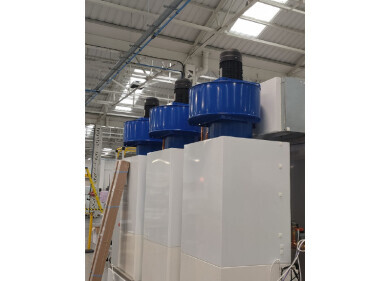Laboratory Products
Why Are Children More Resilient Against COVID-19?
Jul 17 2020
A new study conducted by researchers at the University of Texas (UT) supports the theory children are more resilient to SARS-CoV-2, the strain of coronavirus that causes the COVID-19 disease. After analysing paediatric data from more than 130 studies from 26 countries around the world, the team found most children with COVID-19 coped better than their adult counterparts.
"Our data is compiled from 131 studies and encompasses 7,780 patients who span the paediatric age spectrum," says neonatologist Alvaro Moreira, MD, MSc, senior author of the study and assistant professor of paediatrics at UT Health San Antonio.
19% of children asymptomatic
Working from the Long School of Medicine at the UT Health Science Centre at San Antonio, the team sifted through data and found that 19% of children who tested positive for COVID-19 presented no symptoms. Of the 7780 patients analysed, just seven deaths were reported. X-rays revealed 21% of paediatric patients suffered from patchy lesions on the lungs, with just 5.6% contracting co-infections such as influenza. Where around one in five adults develop serious symptoms and require hospitalisation, just 3.3% of children were admitted to ICU wards.
“Although we are hearing about severe forms of the disease in children, this is occurring in very rare circumstances," says Dr. Moreira.
Fever and cough most common symptoms
It’s the largest systematic review of children and young adults to date, with findings published in EClinicalMedicine, an open access clinical journal operated by The Lancet. Like adults, the most common symptoms in children were a dry cough and a fever. Of the paediatric patients analysed, around 56% presented with coughs and 59% with fevers. The team also factored in the medical histories of 233 patients, with 152 suffering from pre-existing respiratory or cardiac disease issues or compromised immune systems.
“In the study we report the most common symptoms, quantify laboratory findings and describe imaging characteristics of children with COVID-19," Dr. Moreira said. "Furthermore, we summarise treatments that were administered and offer an initial glimpse of a handful of patients who met the U.S. Centres for Disease Control and Prevention (CDC) criteria for multisystem inflammatory syndrome in children.”
Inflammatory markers can influence severity
The team noted several inflammatory markers that appeared to influence the severity of symptoms, including interleukin-6, creatine kinase and procalcitonin. For children with these pre-existing conditions, severe cases of SARS-CoV-2 appeared to present in a similar form to adults.
“Children with systemic inflammation had a significant decrease in the amount of lymphocytes in their blood," says Dr. Moreira. "COVID-positive children who didn't have the extreme form of the disease had 42% lymphocytes in their blood, versus 11% in children with the multisystem syndrome.”
In the fight against COVID-19 state-of-the-art laboratory equipment is critical. To find out more about the importance of using high-quality equipment, don’t miss ‘How Glass Vial Quality Affects Data Accuracy’ with insight from Antonietta Wallace on behalf of Thermo Fisher Scientific (UK) Ltd.
Digital Edition
Lab Asia 31.2 April 2024
April 2024
In This Edition Chromatography Articles - Approaches to troubleshooting an SPE method for the analysis of oligonucleotides (pt i) - High-precision liquid flow processes demand full fluidic c...
View all digital editions
Events
Apr 22 2024 Marrakech, Morroco
Making Pharmaceuticals Exhibition & Conference
Apr 23 2024 Coventry, UK
Apr 23 2024 Kintex, South Korea
Apr 23 2024 Seoul, South Korea
Apr 24 2024 Jakarta, Indonesia

.jpg)


.jpg)













